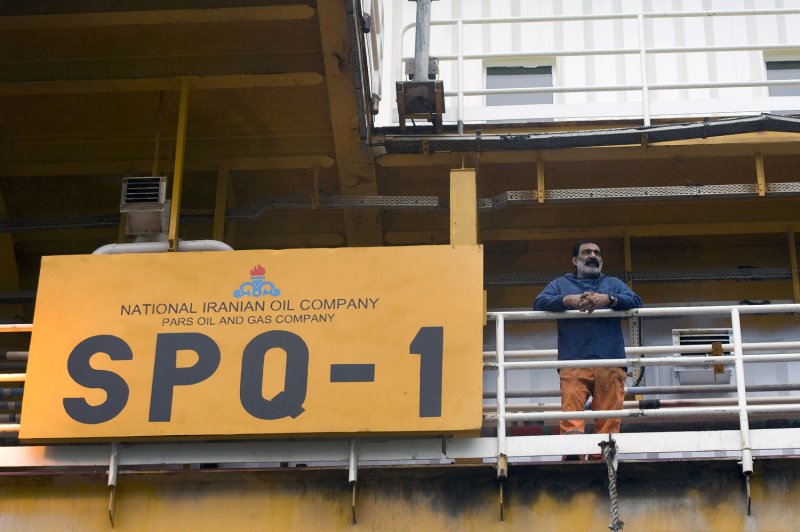Austrian energy company OMV said it was placing Iran near the top of an investment strategy that puts profitability above production. File photo by Maryam Rahmanian/UPI |
License Photo
VIENNA, Feb. 18 (UPI) -- Austrian energy company OMV said it was placing bets on opportunities in Iran as it retools its upstream portfolio for growth in the weakened energy sector.
Rainer Seele, the company's chief executive officer, said the company would use at least 90 percent of its investments for exploration and production on keeping output steady at 300,000 barrels of oil equivalent per day through 2020. Should the political opportunity present itself, a production revival in war-torn Libya and Yemen may be on the agenda.
Short term, Seele said the main development regions are Iran, Russia and the United Arab Emirates. OMV shares pipeline interests with Russian natural gas company Gazprom and four years ago agreed to drill as many as three appraisal wells in the Shuwaihat field in western Abu Dhabi.
In Iran, the company said it was evaluating the opportunities in at least two separate field development projects.
"OMV has never closed the office in Teheran, even in difficult times," Robert Lechner, a spokesman for OMV, said in response to email questions. "We are in regular contact with Iranian representatives."
Seele last year accompanied other European delegates for a trade visit to Tehran. OMV said the dialogue with Iran was open, but there were no concrete developments in the works at the time. The company said last year improved technologies, attractive investment opportunities and easing of sanctions were necessary for a full embrace of Iran.
Sanctions, easing as a result of a July nuclear agreement with world powers, starved Iran's energy sector of much-needed investments. The U.S. Treasury Department estimated Iran was out about $40 billion in revenue as a result of sanctions.
Iran, Russia and the United Arab Emirates are part of an investment plan that Seele said places profitability over production growth.















